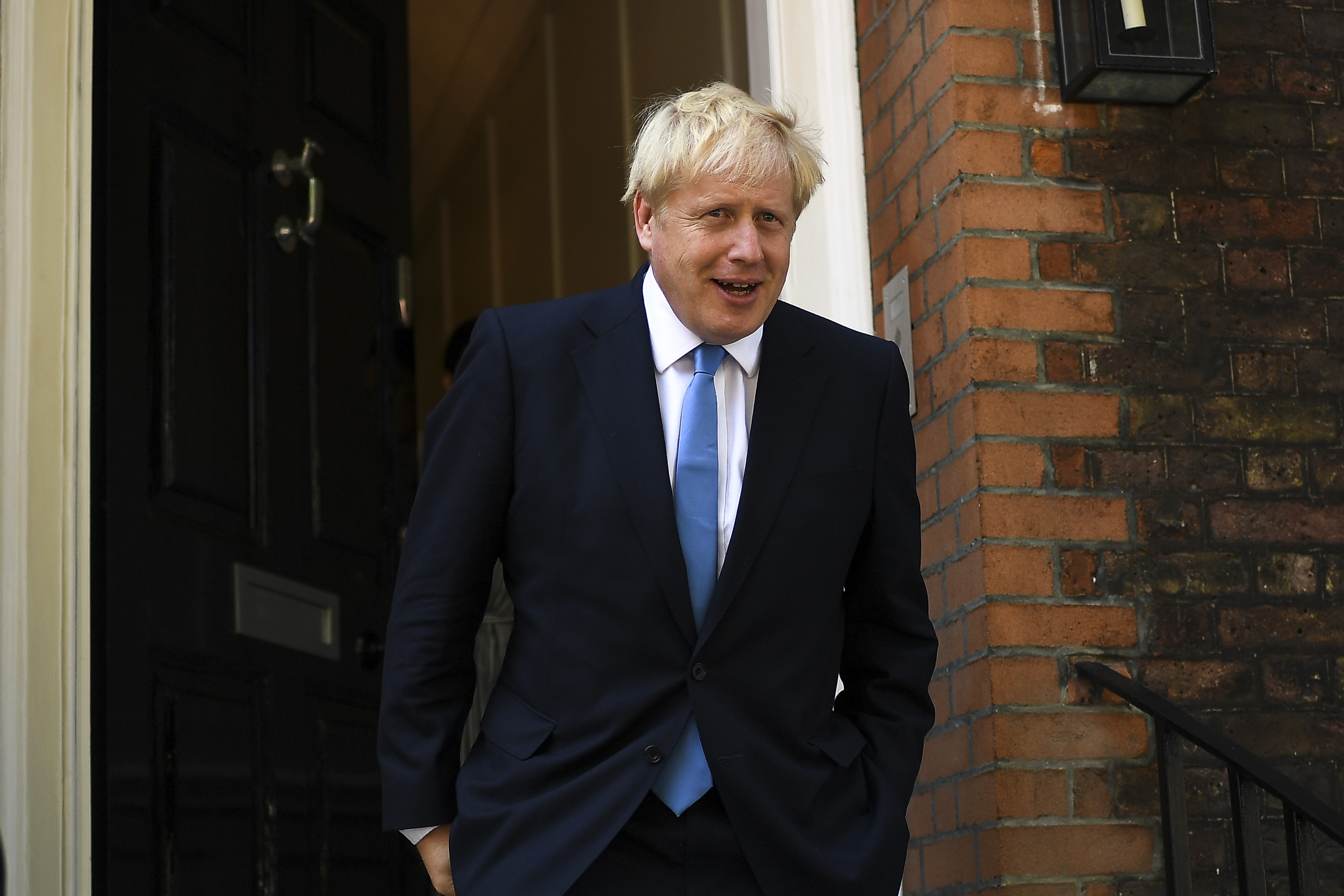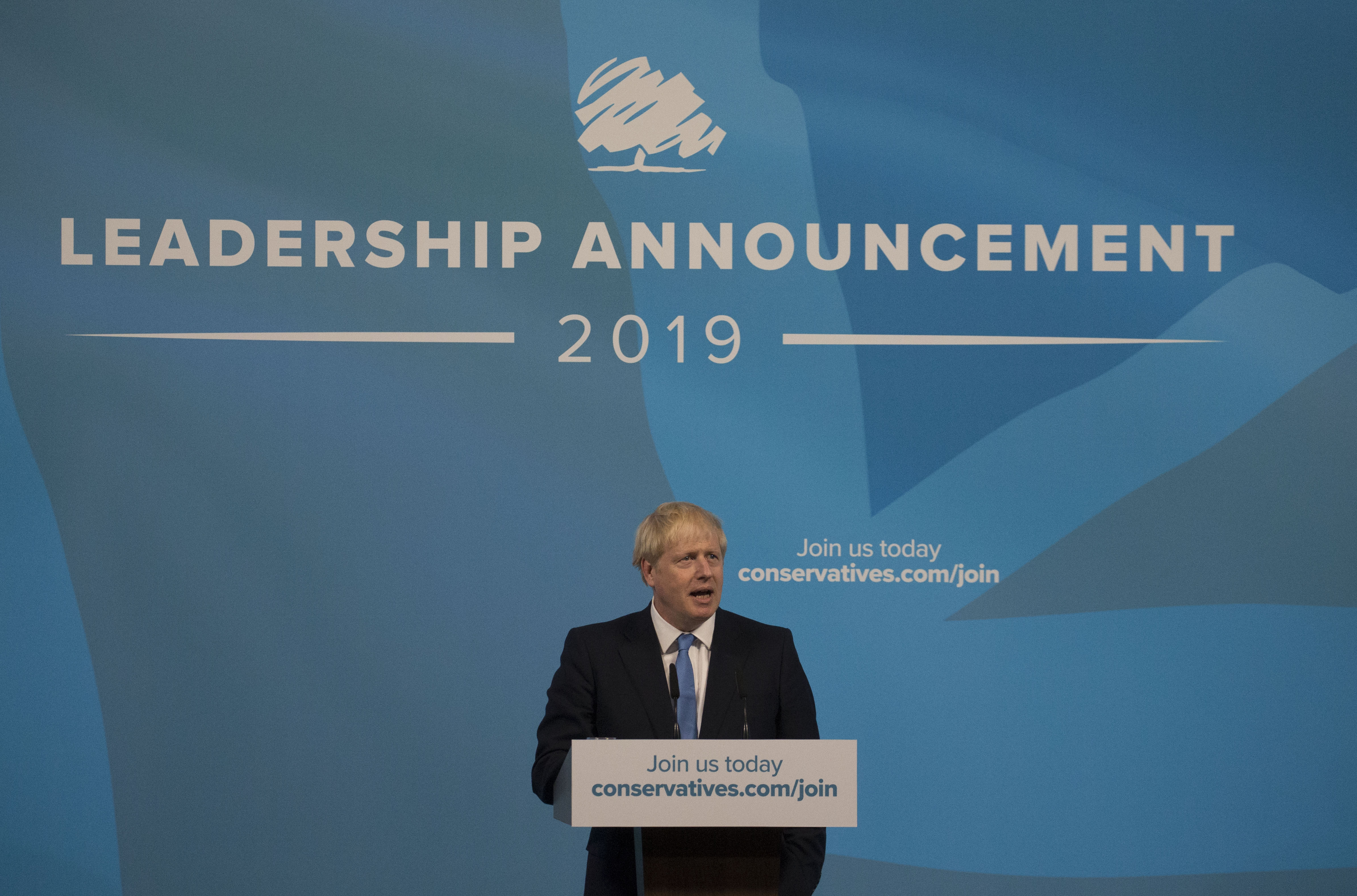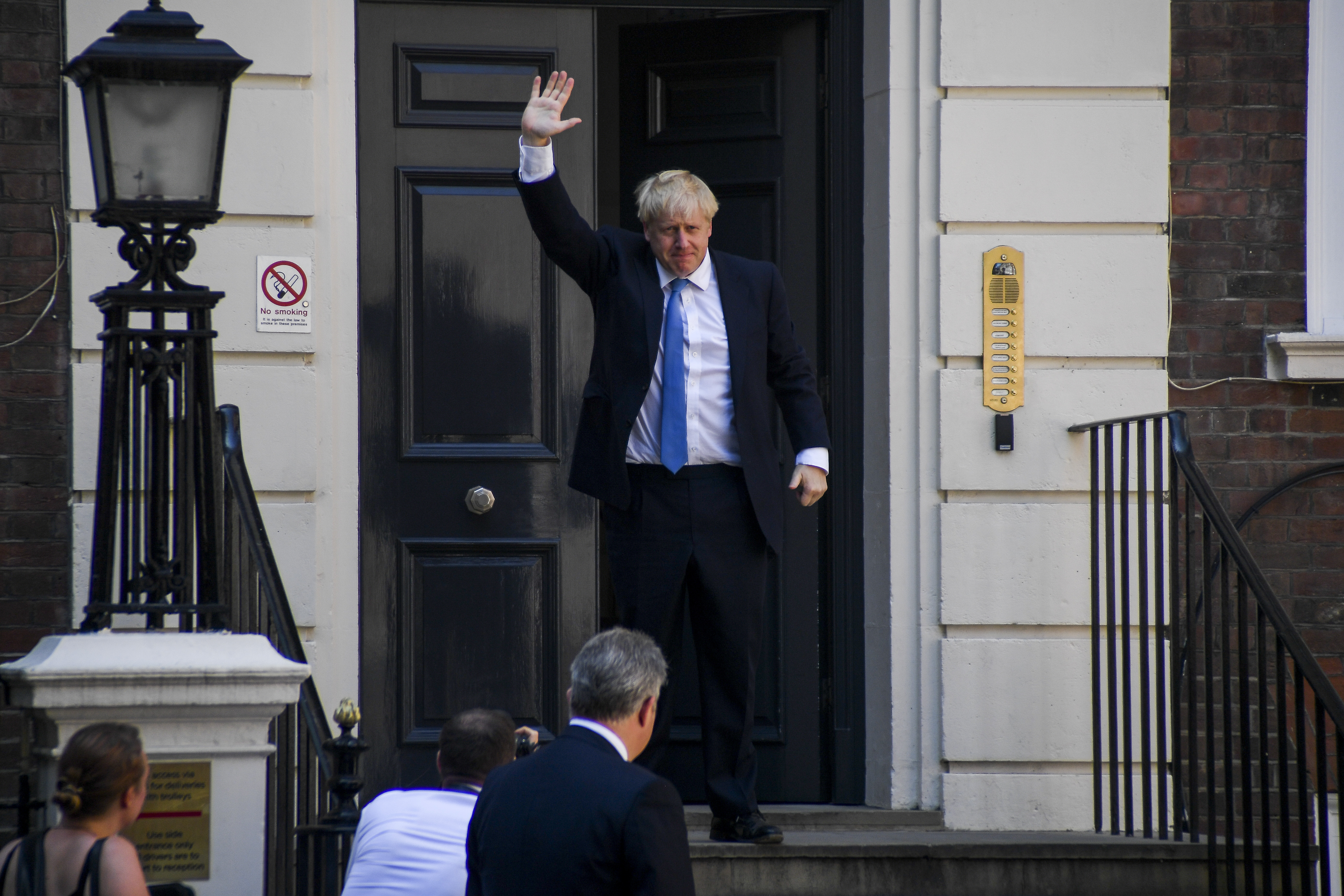LONDON, July 24 (Xinhua) -- Boris Johnson is expected to be crowned on Wednesday as Britain's new prime minister, taking over the daunting task of uniting a divided country from Theresa May.
Johnson, who as a kid had ambitions to become "the king of the world", won two-thirds of the votes in contest for the leadership of the governing Conservative Party on Tuesday.
Winning double the number of votes among party members as his challenger, Foreign Secretary Jeremy Hunt, meant Johnson could rightly take the mandate to succeed May as prime minister.
The handover will be completed after both May and Johnson hold separate audiences at Buckingham Palace with Queen Elizabeth Wednesday afternoon.
Johnson will then head to his new home at 10 Downing Street where he will make his first public speech as prime minister in front of one of the world's most famous front doors.
Behind the closed door of No. 10, Johnson is immediately expected to start the task of assembling his new ministerial team, which is likely to take several days.

Boris Johnson leaves his campaign headquarters before the announcement in London, Britain, on July 23, 2019. (Photo by Alberto Pezzali/Xinhua)
LOVE AND LOATH
May sent her congratulations to Johnson on her Twitter account, saying: "we now need to work together to deliver a Brexit that works for the whole UK."
She said Johnson will have her full support from the back benches.
In Brussels, the EU's Brexit negotiator Michel Barnier said: "We look forward to working constructively with Boris Johnson when he takes office, to facilitate the ratification of the Withdrawal Agreement and achieve an orderly Brexit. We are ready also to rework the agreed Declaration on a new partnership in line with EU guidelines."
Young Conservatives together with the more traditional middle-aged, middle-class party members rallied to support their new blonde-haired leader, an old Etonian and a historian confidently able to quote from the classics.
The party's arch enemy, Labour, did not share the enthusiasm. Instead they issued their own rallying call to more than 500,000 of their members.
"How did our country sink so low? Whether you think he's a scruffy Etonian buffoon or a cold, calculating liar, what's clear is his terrifying support of a damaging No-Deal Brexit and his stunningly out-of-touch policy of tax cuts for the wealthy. We have to stop him," beamed the message from the Labour headquarters.

Newly elected Conservative party leader Boris Johnson gives a speech during the Conservative Leadership announcement at the Queen Elizabeth II Centre in London, Britain, on July 23, 2019. (Xinhua)
Johnson also faces being stopped in his tracks by some of his own rebellious House of Commons MPs, including some ex-ministers who have moved from the front line to back benches, unable or unwilling to serve their new master.
Reaction from the business world was guarded, with the Confederation of British Industry (CBI), Federation of Small Businesses (FSB) and British Chambers of Commerce, all dishing out advice on what the new prime minister should do to protect trade and industry from a messy and harmful Brexit.
In the corridors of academia, there was more dismay than joy at Johnson's elevation.
"There's a problem with the policy of exiting the EU on Oct. 31, 'do or die'," said political expert Professor Anthony Glees from the University of Buckingham.
"He was the man who delivered the result for the Conservative Brexiters," and as prime minister he now has to take responsibility for what he has promised and help to bring it about, said Glees.
Professor Iain Begg from the London School of Economics (LSE) said the challenges that May wrestled with have not gone away, adding: "charisma alone will not solve them."
"It is exceptional for a new PM to come into post already facing so many criticisms," Begg told Xinhua.

Newly elected Conservative party leader Boris Johnson poses outside the Conservative Leadership Headquarters in London, Britain, on July 23, 2019. (Photo by Alberto Pezzali/Xinhua)
BORIS AND BREXIT
Johnson had promised a list of "goodies" to woo the masses after years of austerity, but the big bogeyman in the room remains Brexit.
May failed three times to get through the Brexit deal she brokered with Brussels, with one of the main stumbling blocks being the border between Northern Ireland and the Irish Republic.
When Britain finally leaves the EU, the 500-km frontier between British-controlled Northern Ireland and neighboring Ireland will be the only EU border on British soil. The EU has insisted there must be a backstop, and has stubbornly refused to give way.
In his leadership campaign, Johnson insisted Britain will leave the EU by Oct. 31 -- with or without a deal.
The EU will hold an urgent meeting on Wednesday when their approach will be made clearer, but there is no hint of a climbdown by Brussels.
According to Professor Glees, Johnson has three choices: to commit to a no-deal Brexit on Oct. 31, to try to have a new deal by Oct. 31 or to have a general election.
"My guess is that the third is the most likely despite what he himself says about not doing this," said Glees.
Glees said a no-deal exit from the EU will result in a recession and destroy agrifood, fisheries and industry, and finally see significant unemployment.
"Boris Johnson has given himself no wriggle room with his pledge to leave the EU with or without a deal by Oct. 31," University of Liverpool political expert Professor Jon Tonge told Xinhua.
According to Tonge, the parliament will block a no-deal Brexit so Johnson's choices will be very limited. "He could ask for an extension to agree on a deal, with no realistic chance of dropping the backstop, or gamble on a bigger mandate by calling a general election," said the professor.
Nevertheless, Johnson remained upbeat and buoyant about the months ahead in his off-the-cuff victory speech.
"I think we know that we can do it and that the people of this country are trusting in us to do it and we know that we will do it," said the incoming prime minister.
(Reporters Jin Jing, Liang Xizhi; Video editor Yin Le)



